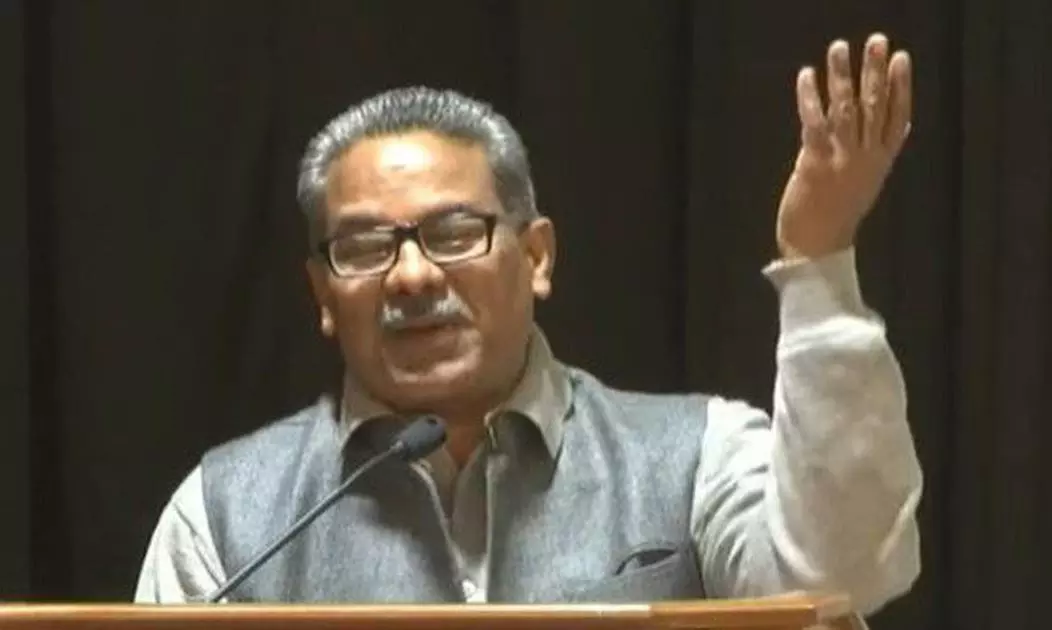
RSS leader says Sati introduced to protect women from Islamic rulers
text_fieldsNew Delhi: Krishna Gopal, joint secretary of the Rashtriya Swayamsevak Sangh (RSS), linked the restrictions and compulsion on Hindu women to protect them from predatory practices of Islamic rulers during the Middle Ages.
Gopal made a series of controversial statements during an event on women's empowerment at Delhi University, asserting that several restrictions on women in India were a response to Islamic invasions in the country's history.
Gopal claimed, without providing any references, that practices like 'sati,' which involved forcing women to be burned alive at their husband's funeral pyre, were not prevalent in the country's history.
He further asserted that there were no restrictions on widow marriages before the era of Islamic rulers like Ahmed Shah Abdali, Mohammed Ghouri, and Mahmood of Ghazni. Gopal argued that the rampant atrocities targeting women during the rule of these Islamic rulers forced the introduction of restrictions for women's safety and dignity.
He remarked that during the Middle Ages, India faced significant challenges, including subjugation, the destruction of temples and universities, and threats to women's safety. He alleged that many women were abducted and traded in international markets by figures like Ahmed Shah Abdali, Mohammed Ghouri, and Mahmood of Ghazni.
According to Gopal, he emphasized that figures like Ram and Krishna were married at a certain age, and the practice of child marriage began due to the influence of Islamic invaders. He claimed that before the Islamic invasions, there was no tradition of 'sati' in India. Gopal argued that child marriages were introduced to ensure the safety of girl children, and 'satipratha' was not prevalent in the country.
Gopal further elaborated that as a result of these historical challenges, women faced restrictions, including limitations on widow remarriage. He explained that these restrictions were implemented as measures to address what he termed "an emergency situation" in society.
He also highlighted the significant role played by women in Indian society between the 12th and 18th centuries, citing examples such as Sant Ramanand and his disciples, including women who spread Vaishnav thought.
Warning against the influence of Western culture, Gopal suggested that women should be cautious, acknowledging their progress in various fields. He emphasized the pivotal role of women in households, stating that they impart values to children and families. Gopal emphasized the importance of managing the kitchen, citing examples of prominent women who balanced careers and kitchen responsibilities.
Moreover, Gopal discussed the impact of modern civilization on society, expressing concerns about loneliness, depression, and increased alcohol consumption. He asserted that women were responsible for creating a harmonious family environment.
In reference to the status of women in ancient Indian society, Gopal pointed out that the Rig Veda featured contributions from 27 women who composed hymns. He emphasized the significance of women as mothers and their revered role in Indian culture.
Gopal concluded by mentioning Draupadi as an inspirational figure and the cultural practice of addressing young girls in the South as 'amma.'






















